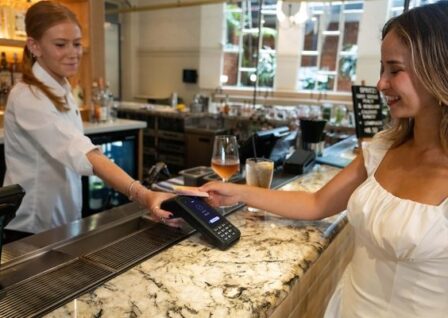How small businesses can use the tax benefits to upgrade their payment tech

29 September 2021 - 3 min read
Business Strategies

During times such as these, scammers may try to take advantage of people’s concerns and challenging circumstances. Their scams come in various forms and may have specific targets in mind, such as business owners.
In particular, scammers are targeting business owners accepting card not present payments, including telephone orders (MOTO), and encouraging businesses to inflate payment values and make direct credit payments to unknown third parties.
Telephone order fraud is particularly prevalent where businesses process large value transactions, such as bike shops or catering providers. Refund fraud is also a common scam.
We’ve highlighted 3 specific sections of our fraud prevention guide that business owners should be aware of and prepared for.
When providing refunds, only refund to the card used in the corresponding payment transaction and never provide a refund for more than the value of the corresponding sale.
If a business owner processes a payment on a card and then refunds to a different card or by another payment method such as a bank transfer, the different card or other payment destination has immediate access to the funds and a chargeback may be received against the card used in the corresponding payment transaction, leaving the business out-of-pocket.
Before refunding card present transactions, always check the value of the transaction on the EFTPOS paper receipt and never refund to a value above this amount.
Never increase the value of a payment transaction to cover monies owed by a cardholder to an unknown third party such as a courier service, and never make payments to these third parties via money or bank transfers.
Fraudsters use Funds Transfer Fraud as a mechanism to extract cash from businesses, generally by placing larger value orders over the phone. This often results in monies being transferred to (say) a courier engaged in the fraudulent activity and a fraud chargeback being received because the card used in the payment transaction was stolen.
MOTO transactions are riskier than card present transactions and are more likely to result in a chargeback. In the event of a chargeback, it is the business’ responsibility to prove that the actual cardholder (and not a fraudster in possession of the card details) initiated and completed the transaction, meaning that the risk of MOTO transactions resides with the business, not Tyro or the cardholder.
MOTO transactions should only be processed when the value of the transaction sits within the business’ risk appetite for loss. It is often said that if a purchase (or sequence of purchases) seems too good to be true, then it probably is and caution should be taken before shipping goods or providing services. MOTO payments should never be processed when the cardholder is present, because this bypasses the security features provided by the EFTPOS machine.
If a business has MOTO enabled on their EFTPOS machine and would like to have this functionality removed, they should contact Tyro Customer Support on 1300 00 TYRO (8976).
For more information, please view our fraud prevention guide, along with information contained in our chargebacks and disputes guide.
For guidance on a variety of COVID-19 related topics, please take a look at our series of advice articles:





You may also like
Australian-based 24/7 support